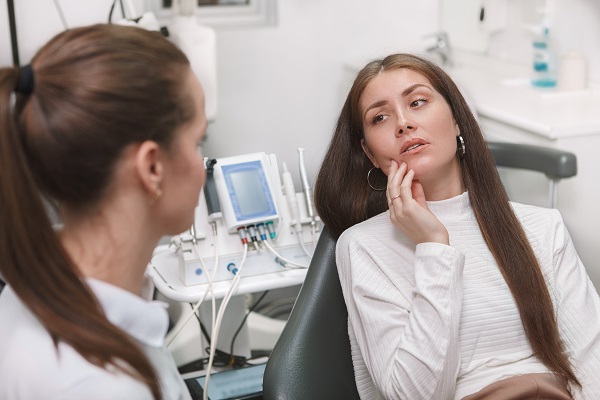An Emergency Dentist Talks About 4 Ways You Can Avoid an Emergency

Do you need an emergency dentist? The best way to deal with a dental emergency is to prevent it from occurring in the first place. Although emergency dentists offer services when urgent dental care is needed, they also strive to help patients prevent emergencies from happening through good oral hygiene, wearing a mouthguard, and avoiding hard and sticky foods.
4 Tips from an emergency dentist on emergency prevention
Everyone should evaluate their daily routine and diet to find ways that they can minimize the risk of damage to teeth from poor oral hygiene or dental trauma. There are several more common ways to avoid a dental emergency, which includes practicing good oral hygiene, protecting teeth properly, and avoiding harmful foods and drinks.
1. Keep teeth healthy with good oral hygiene
One of the main causes of a dental emergency is oral health complications, such as oral infections and severe dental cavities that result in more concerning and painful symptoms. To prevent this, patients should brush their teeth several times a day, floss at least once a day (ideally after each meal), and keep the mouth clean with mouthwash and by drinking water throughout the day. This prevents a build-up of bacteria and food particles that can increase the risk of dental cavities and oral infection.
2. Protect teeth during physical activity
Another reason many visit the emergency dentist is to receive treatment for dental trauma. This occurs when there is a blow to the mouth that results in damage to one or more teeth or the gums. The best way to prevent dental trauma is to take precautions during physical activities such as playing contact sports, lifting weights, and working in outdoor areas (i.e. construction zones). If in a vulnerable situation or area where a blow to the face is possible, then consider wearing a mouthguard or another type of protective gear that reduces the risk of dental trauma.
3. Avoid foods that may cause teeth chips and cracks
Dietary choices play a large role in preventing oral health concerns or dental trauma. To reduce the risk of dental cavities, oral infections, etc., limit the intake of sugar and other carbohydrates. Also, biting down on hard or sticky candies, ice, and other hard foods can damage teeth and even lead to chips and cracks, and being careful while chewing is also essential.
4. Visit the dentist for routine checkup visits
Some cavities that are far back in the mouth are hard to detect without routine checkup visits. Cavities that are not promptly treated can increase the risk of a dental emergency. Subsequently, emergency dentists typically recommend routine checkup visits as a way to minimize the risk of needing emergency treatment to deal with severe tooth pain, sensitivity, and other symptoms of a tooth infection or severe dental cavity.
Looking for an emergency dentist?
If you have a dental emergency and need urgent treatment, then contact our emergency dentist team now for prompt assistance. We take pride in providing quality care to patients who need immediate treatment, and we offer a range of emergency dentistry services.
Are you considering an emergency dentist in the Los Angeles area? Get more information at https://www.beverlyhillsfamilydentalgroup.com.
Check out what others are saying about our dental services on Yelp: Emergency Dentist in Los Angeles, CA.
Recent Posts
Asking an emergency dentist for their advice whenever a dental emergency is experienced is something everyone should do. A dentist who offers emergency dental service is someone who knows the essential steps to take for any type of dental emergency. These first steps are a crucial part of ensuring successful treatment of the emergency situation.…
Knowing when to seek emergency dental care can be tricky. While many dental issues are extremely time sensitive, others can be left for months with little risk.Some tooth problems, like cavities, are slow to change. If there is no pain and the dental issue is not the result of trauma, usually treatment can wait until…
Dental health professionals are responsible for providing a safe environment for emergency dentistry procedures during the Coronavirus (COVID-19) disease outbreak. Considering the risks of cross-infection in dental offices, the American Dental Association and the Center for Disease Control (CDC) have developed guidelines to control infections during any emergency dentistry care. This includes a thorough cleaning…
According to one family dentist, just because someone loses a tooth does not mean there is no way to save it. In fact, if you lose one, you have several options. Whether knocked out in a car accident, while playing sports or due to tooth decay, do not despair. Start by looking at the tips…